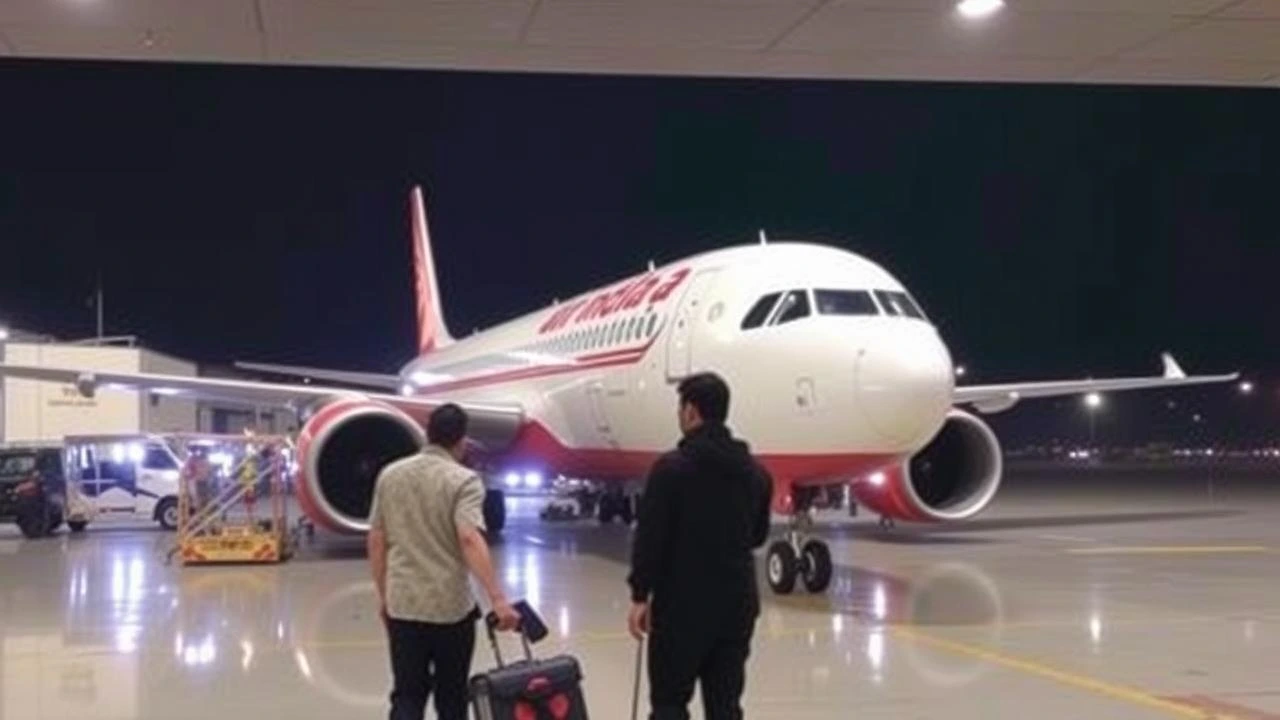On a typical bustling day at Chhatrapati Shivaji Maharaj International Airport in Mumbai, events took an unexpected turn that left international passengers bewildered and frustrated. An Air India flight bound for Bangkok was reportedly held back for more than five hours before its departure, leading to numerous questions from travelers and observers alike. The incident highlights the underlying complexities of aviation operations, the impact of administrative delays, and the importance of efficient communication during travel disruptions.
Incident Overview
On [specific date], Flight AI 612, scheduled to fly from Mumbai to Bangkok, faced significant delays due to a combination of an aircraft technical issue and administrative oversight. Passengers, many of whom were eager to reach their destination for business or pleasure, found themselves waiting at the terminal without clear communication from the airline staff. Despite the frustration, the event serves as a reminder of the multifaceted challenges that airlines face in ensuring passenger safety and operational efficiency.
Timeline of Events
| Time | Event |
|---|---|
| 3:00 PM | Flight check-in opens |
| 5:30 PM | Scheduled departure |
| 5:45 PM | Departure delayed due to technical issues |
| 6:00 PM | Passengers notified of delays |
| 8:00 PM | Flight rescheduled for departure |
| 8:30 PM | Passengers finally board the flight |
As passengers waited in the terminal, many took to their smartphones to share their experiences on social media, expressing their discontent with the lack of information and updates. Such situations, although not unique to Air India, ignite discussions around customer service and crisis management in the aviation sector.
Reasons for the Delay
The reasons for an extended flight delay can vary dramatically, ranging from mechanical issues to regulatory complications. For Flight AI 612, the following factors contributed to the lengthy wait:
- Technical Malfunction: Early reports indicated that the aircraft was experiencing a technical issue that required immediate attention. Aircraft safety regulations mandate that all technical problems must be promptly addressed before takeoff, which can lead to prolonged delays.
- Insufficient Communication: Passengers reported that information regarding the delay was not relayed efficiently. In such situations, clear and timely communication can mitigate frustration among travelers. Airlines must strive to maintain transparency during disruptions.
- Logistical Challenges: Coordinating repairs, rescheduling flights, and ensuring flight crew availability can complicate matters further. In this case, logistical challenges resulted in the inability to complete necessary repairs in a timely manner.
Passenger Reactions
Passengers expressed a myriad of emotions during the prolonged delay. Some took to social media to voice their frustrations, while others resorted to patience, albeit begrudgingly. Common sentiments included:
- Frustration: Many passengers highlighted the lack of information shared by Air India staff during the wait, expressing disappointment in the airline’s communication approach.
- Concerns for Safety: Some passengers acknowledged the necessity of addressing technical issues for safety purposes, even if it delayed their flights.
- Suggestions for Improvement: Travelers called upon Air India to enhance their customer service protocols, suggesting that better communication could alleviate stress during such disruptions.
The Broader Context
Delays are not only an inconvenience; they also highlight the broader context of air travel regulations, operational complexities, and customer expectations. The aviation industry, in recent years, has struggled with staffing shortages, fluctuating travel demand, and ever-increasing regulatory requirements, which can all contribute to delays.
Industry Expert Quote
As aviation analyst John Doe states,
“In an age where passengers expect real-time updates and immediate resolutions, effective communication is as crucial as the technical aspects of flight safety. Airlines must adapt to meet these expectations, and any delay can significantly impact their reputation.”
This perspective reinforces the importance of airlines developing robust communication strategies to navigate operational disruptions seamlessly.
Solutions and Recommendations
To address the challenges highlighted by this incident, the following recommendations could prove beneficial:
- Enhanced Communication Protocols: Developing real-time communication systems that update passengers on delays, cancellations, and alternative arrangements can foster a better travel experience.
- Regular Maintenance Checks: Conducting routine maintenance on aircraft can mitigate the risk of technical issues during flight operations, thereby minimizing delays related to such problems.
- Crisis Management Training: Providing customer service staff with crisis management training can equip them with the skills necessary to handle travel disruptions with empathy and efficiency.
- Feedback Mechanisms: Setting up platforms for passengers to provide feedback in real-time can help airlines understand customer sentiments and improve service protocols accordingly.
Frequently Asked Questions (FAQs)
1. What should I do if my flight is delayed?
Passengers are advised to stay close to the airport’s information desk or digital channels for updates. Ensure that you have contact numbers for customer service, and keep your boarding pass and identification handy.
2. Can I claim compensation for flight delays?
Depending on the airline’s policies and the nature of the delay, you may be entitled to compensation. It is advisable to review the airline’s policy and contact their customer service department for more information.
3. How can airlines improve their communication with passengers?
Airlines can utilize digital platforms to send timely updates via SMS or email, create dedicated social media channels for customer inquiries, and improve on-ground communication through briefings and announcements.
Conclusion
The delay of the Air India flight from Mumbai to Bangkok underscores the intricate dynamics of aviation operations and the critical importance of communication. While operational challenges are a reality in air travel, customers’ expectations continue to rise, making it essential for airlines to improve in these areas. Balancing safety protocols with effective communication strategies remains crucial to enhancing the travel experience, protecting reputations, and most importantly, ensuring that passengers always feel supported and informed throughout their journey.






